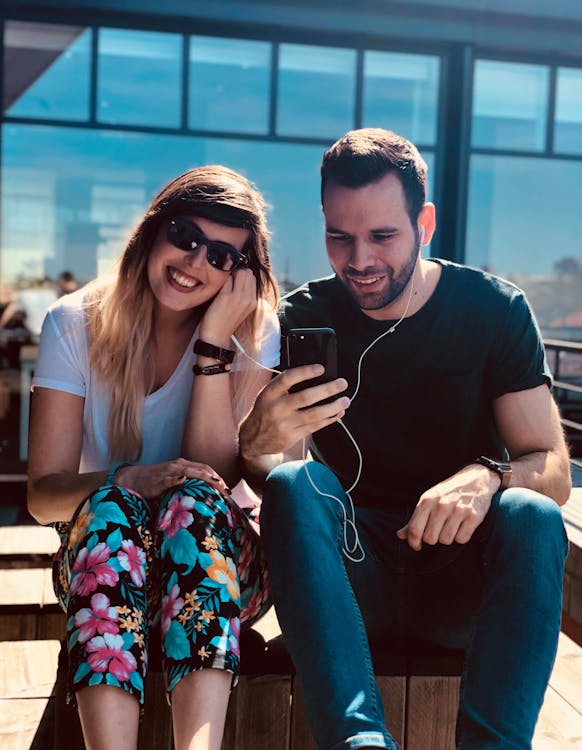🎶Korean Level 3, Activity 14: 은지는 노래 듣는 걸 좋아한다고 했어요./ Eunji Told Me That She Likes Listening to Music

Description:
Students will learn how to quote what someone else said. They will be able to explain their conversation with a friend to another person.
Semantic Topics:
Conversation(대화), Informal(격식 없는), Friend(친구), Casual(일상적인)
NCSSFL-ACTFL World-Readiness Standards:
- Students engage in conversations, provide and obtain information, express feelings and emotions, and exchange opinions.
- Students use a variety of Korean language resources to gather information related to their career of interest (e.g., medicine, law, journalism, education, engineering, entertainment).
- Students demonstrate an awareness of the use of age-appropriate speech styles of the Korean language.
Idaho State World Language Standards:
- COMM 2: Discover meaning from what is heard, read, or viewed on a variety of topics in the target language.
- CLTR 1.1Analyze the cultural practices/patterns of behavior accepted as the societal norm in the target culture.
- COMP 2.2 Compare and contrast appropriate gestures and oral expressions in the target culture with the learner’s culture.
NCSSFL-ACTFL Can-Do Statements:
- I can exchange information about the types of music and movies people prefer.
- I can talk about an experience related to my hobbies or activities
- In my own and other cultures, I can compare how attitudes toward informality and formality in relationships affect behavior and language. (We will be conducting this lab in informal language.)
Materials Needed:
Warm-Up:
Begin by introducing the Can-Dos for today’s activity.
오늘의 학습목표를 소개하는 것으로 수업을 시작하세요.
1. Review how to quote someone in Korean.
한국어로 어떻게 인용하는지 복습해 봅시다.
- ~는다고 하다
- ~았/었다고 하다
- ~을 거라고 하다
Main Activity:
1. Open up Google Slides. Distribute the Question Cards to students.
구글슬라이드를 여세요. 질문 카드를 학생들에게 나눠주세요.
2. Students will converse with their partners using the Question Cards.
질문카드를 이용하여 짝과 대화하세요.
- Do you go to the library often?
- No, I go to coffee shops often instead of going to the library.
- 도서관에 자주 가?
- 아니, 도서관 안 가고 카페에 자주 가.
3. When they finish conversing, switch partners.
대화가 끝나면 파트너를 바꾸세요.
4. With new partners, students will ask their partners what their previous partners talked about.
새 파트너에게 전 파트너가 뭐라고 했는지 물어보세요.
- Where does Eunji study?
- She told me that she studies at coffee shops.
- 은지는 어디서 공부한다고 했어?
- 은지는 카페에서 공부한다고 했어.
Wrap-Up:
Ask the following question to finish the lab(이 질문으로 랩을 마무리하세요):
- What do you want to know more about your classmates? Ask them!
- 반 친구에게 궁금한 게 있나요? 물어보세요!
End of activity:
- Read Can-Do statements once more and have students evaluate their confidence.
- (Use thumbs up/thumbs down or download our student cards.)
- Encourage students to be honest in their self-evaluation.
- Pay attention, and try to use feedback for future labs
NCSSFL-ACTFL Can-Do Statements:
- I can exchange information about the types of music and movies people prefer.
- I can talk about an experience related to my hobbies or activities
- In my own and other cultures, I can compare how attitudes toward informality and formality in relationships affect behavior and language. (We will be conducting this lab in informal language.)

